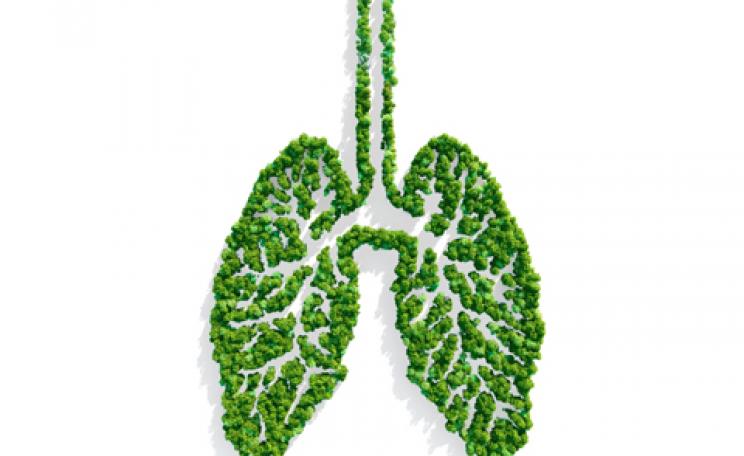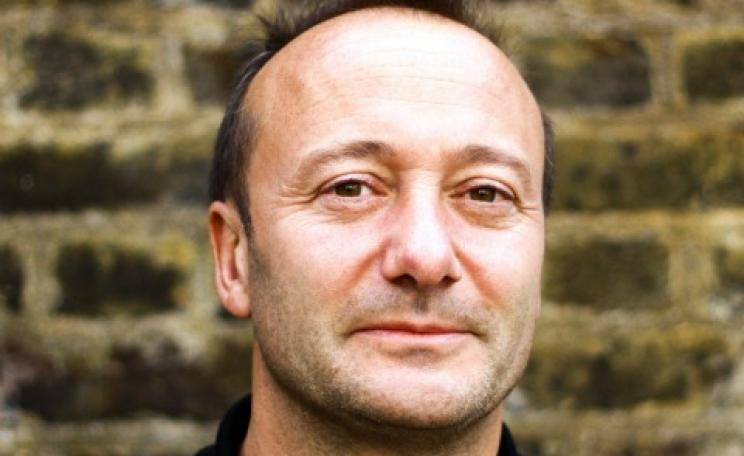You wouldn't tell by looking at it, but the picturesque residential street in upmarket Hampstead, north London, is home to a hotbed of radical thinking. Since 1984, when Ed Posey transformed his family home and, along with Liz Hosken, created the Gaia Foundation, the Well Walk address has lent spiritual, physical and intellectual support to some of the most accomplished activists - from Navdanya founder Vandana Shiva to Brazil's Chico Mendes and Nobel Peace Prize winner Wangari Maathai.
The Gaia Foundation aims to carve out a ‘path of the future': a complete paradigm shift towards ‘cultural and biological diversity' and away from the domination of the industrial worldview.
Gaia's work strengthens the 'voices of the south', the indigenous societies whose traditions and cultures work in harmony with ecosystems. In industrial society, these cultures are considered 'backwards' yet given industrialisation's destructive relationship with our environment, it seems they have a lot to teach us.
‘Over 25 years, we've evolved clarity about the common, unifying principles and how one works with socio-eco systems,' says Liz. Gaia came together through a common critique of development and the impacts of world trade. Both Liz and Ed count Teddy Goldsmith, Ecologist founder, as having a major influence on their work.
Rethinking basic assumptions
‘We were challenged by many people on whether or not we could revive traditions and create an antidote to the Western world's way of life. But indigenous people say that the seed of knowledge and culture never dies,' says Liz. ‘It only takes a few people in a shattered community to work with elders with great knowledge to bring that memory back, then it will attract more and more people.'
With such a radical outlook, it is natural that Gaia faced scepticism when soliciting support for their cause. ‘We approached the European Commission and discussed our mission of reviving indigenous traditions in the Amazon rainforest. The official told us it was a romantic idea, yet 20 years later the EU is still funding the work protecting the biggest contiguous area of rainforest, more than 26 million hectares, absolutely governed by indigenous people,' says Liz. This area is run according to the indigenous communities' cultural priorities and values. They negotiate directly with the government and have developed their own intercultural schools and health programmes.
The threats, even to this area, remain: this year mining concessions were granted. ‘The true reality is that we cannot mine the whole planet, but we cannot tolerate the idea of limitations. The most difficult part of paradigm shift is to identify what kind of development we want,' says Liz.
Alternative development
Gaia's initial work in the Amazon, and the establishment of the Indigenous Research Centre set up in Brazil in partnership with indigenous leader Ailton Krenak, was a springboard to a new and unconventional model of inter-cultural dialogue. ‘We developed what we call affectionate alliances with indigenous people there - based on deep convictions about the need to change the global scenario and how we could work together to do that. Our learning was learning how to think again,' says Liz. 'It was like what people in traditional societies call "a remembering".'
The Foundation has worked tirelessly to sow the seeds of a new paradigm by building up the social movements that link communities to their ecosystems. Some of these movements have gained international recognition. Ed and Liz have worked with Greenbelt movement founder and 2004 Nobel Peace Prize winner Wangari Maathai since 1985.
'When you look at her now it is easy to forget what Wangari went through - jail, solitary confinement - to get where she is. Here is this female African leader who is not just talking about human needs - she feels passionately for the earth and she feels passionately for the injustice of people. Ecological sanity and social justice are two sides of the same coin. Wangari now brings that into the mainstream,' Liz says.
 The future of Africa
The future of Africa
Gaia's work has helped give a voice to those non-industrialised communities during global discussions over their land, their resources and rights. Throughout the 1990s, Gaia's work in Europe on challenging genetically modified organisms, was complemented with support to African groups and notably Dr. Tewolde Berhan Egziabher, chief African negotiator for global biological diversity negotiations, who also represented other non-industrialised nations in biosafety accords. In 2000, Dr. Tewolde won the Right Livelihood Award.
Out of these networks emerged the African Biodiversity Network in 2002 to advocate against GM and patents on life. It now also supports, 'food security and buying locally, self sufficiency and not cash cropping,' says Ed.
Gaia has supported the development of an African-led elder village-centred way of regenerating traditions. It holds leadership training in Botswana to explore African traditions, allowing people to re-establish an identity based on incredibly complex knowledge systems about their environment and human relations.
The Gaian idea of 'emergence' sums up what the group aim for. Liz describe it as ‘your food sovereignty, your sacred sites and territorial understanding, your health and education - everything. It's about trying to recreate these vibrant, resilient, just systems which are never perfect, but you are trying to bring out the best in human nature. It sounds idealistic but it doesn't come from sitting around thinking about it. It comes from actually seeing that this can happen. There are always problems, but human systems are like ecosystems: if you give it a bit of a chance, it is incredible what grows.'
- Donations to the Gaia Foundation can be made here.
- Watch their latest film Reviving our Culture, Mapping our Future, on eco cultural mapping as a tool for communities to show the government how important their sacred sites are here.
Matilda Lee is the Ecologist's Community Affairs Editor
| READ MORE... | |
 |
INTERVIEW Gathuru Mburu: Kenya has already had a Green Revolution Forget trying to grow hybrid maize - Africa already has all the crops, storage systems and knowledge that it needs to grow itself out of poverty |
 |
INTERVIEW Million Belay: Ethiopia doesn’t need or want Bill Gates Ecological campaigner Million Belay talks about why protecting Ethiopia's biodiversity is so important and why he opposes the intervention of philanthropists like Bill Gates |
 |
HOW TO MAKE A DIFFERENCE Wangari Maathai: fighting for Kenya's environment Wangari Maathai’s Nobel prize-winning activism has thrust the environment to the forefront of the global security agenda |
 |
HOW TO MAKE A DIFFERENCE Why hand-weaving is a technology for the 21st century Far from being drudgery, weaving without a machine is, for many Indians, a route to emancipation and financial independence |
 |
HOW TO MAKE A DIFFERENCE 10 approaches to tackling over-consumption 'There is enough for everyone’s need, but not for everyone’s greed,’ said Gandhi – but how much does each of us need? |








